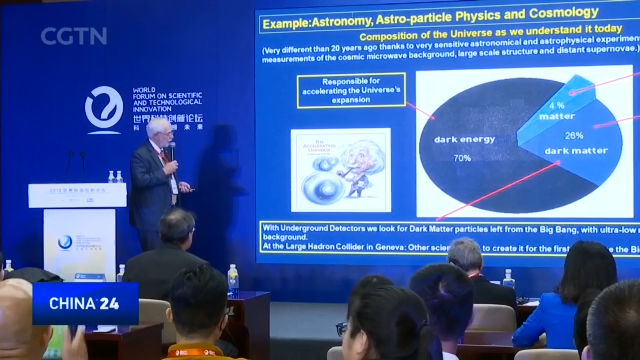
21:41, 12-Aug-2018
China-US Trade Frictions: Scientists push for free and open markets
Updated
20:51, 15-Aug-2018
01:59

Speaking of the China-US trade situation, a Nobel Prize laureate in Economics says most Americans aren't thirsting after tariffs. Instead, they expect a free trade environment. CGTN's Zhao Yunfei was at the World Forum on Scientific and Technological Innovation and had the chance to hear what some scientists had to say about the escalating trade tensions.
The back and forth tariffs between the US and China has gone on for more than a month.
And a Nobel Prize winner in Economics is trying to explain Washington's motivation and stance.
THOMAS SARGENT 2011 NOBEL PRIZE WINNER IN ECONOMICS "I hope there is not trade war. Look at the past, we have seen United States done that, threatened other countries with tariffs since WWII. They were just a threat with some purpose."
Sargent says tariffs have always been used as bargaining tools by the US government to gain more access to other countries' domestic markets. But the process of a trade war is painful -- a move that will restrict its division of labor and market expansions.
THOMAS SARGENT 2011 NOBEL PRIZE WINNER IN ECONOMICS "If the US puts tariffs on Europe and China, the country to hurt most is the United States, because China and Europe can trade with each other."
Sargent praised China's opening up policy, saying Trump should be committed to negotiation in a respectful way.
Under the rising tide of protectionism and unilateralism, even scientists are vowing for international cooperation.
ARTHUR MCDONALD 2015 NOBEL PRIZE WINNER IN PHYSICS "I think that it is essential that there's international collaboration in space studies and in particle physical studies. For my point of view, having opportunities for countries to work together is fundamental to the success of such measurements."
ZHAO YUNFEI BEIJING "Technological innovations thrive under an international environment with open mindset. Otherwise, an unipolar policy may jeopardize the scientific improvements. Zhao Yunfei, CGTN, Beijing."

SITEMAP
Copyright © 2018 CGTN. Beijing ICP prepared NO.16065310-3
Copyright © 2018 CGTN. Beijing ICP prepared NO.16065310-3